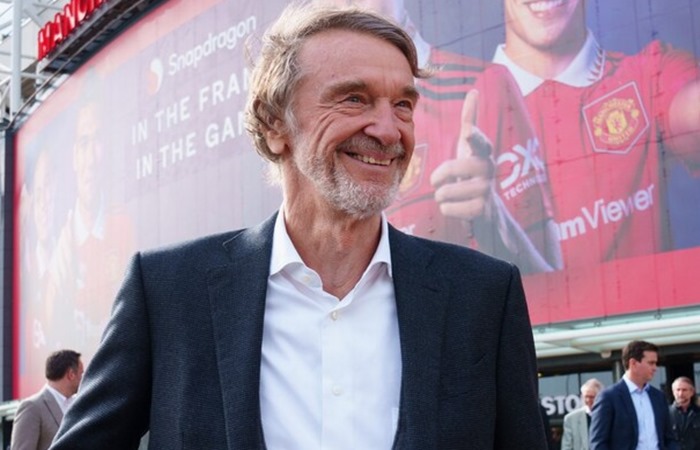
Sir Jim Ratcliffe Sheds Light on Manchester United’s Struggles Post-Ferguson Era.
Manchester United’s recent minority owner, Sir Jim Ratcliffe, has offered insights into the struggles faced by the club’s managers following Sir Alex Ferguson’s retirement in 2013. Ratcliffe’s observations highlight a critical issue at the heart of Manchester United’s challenges: a problematic club culture.
In his reflection, Ratcliffe points out the caliber of coaches who have taken the helm at Old Trafford in the years post-Ferguson. He acknowledges that many of these managers were highly capable and brought a history of success to the table. Yet, despite their credentials, success at Manchester United has eluded them all in the past decade.
Ratcliffe emphasized, “Looking back over the last 11 years, it’s clear Manchester United has seen its fair share of managers. While some of these individuals were indeed highly skilled and brought a track record of success, none have managed to replicate that success within the Manchester United environment over the last 11 years. This, to me, suggests there’s an underlying issue with the environment itself.”
ALSO SEE: Manchester City vs Brentford 1-0 Highlights (Download Video)
The tenure post-Ferguson has seen several notable names at the managerial forefront, including David Moyes, Louis van Gaal, Jose Mourinho, and Ole Gunnar Solskjaer. Each brought their own approach and philosophy to the club, yet none could steer the team back to the heights of success enjoyed under Ferguson.
Ratcliffe’s comments bring to the forefront the ongoing debate about what has been missing at Manchester United since Ferguson’s departure. It suggests that the issue may lie beyond just the managerial position and points to a deeper, more ingrained problem within the club’s culture that needs addressing.
As Manchester United continues to navigate the post-Ferguson era, Ratcliffe’s insights offer a poignant reminder of the complex challenges facing one of football’s most storied clubs. The path back to success may require a more holistic approach, addressing the environmental and cultural issues that have hindered the club’s progress.

















